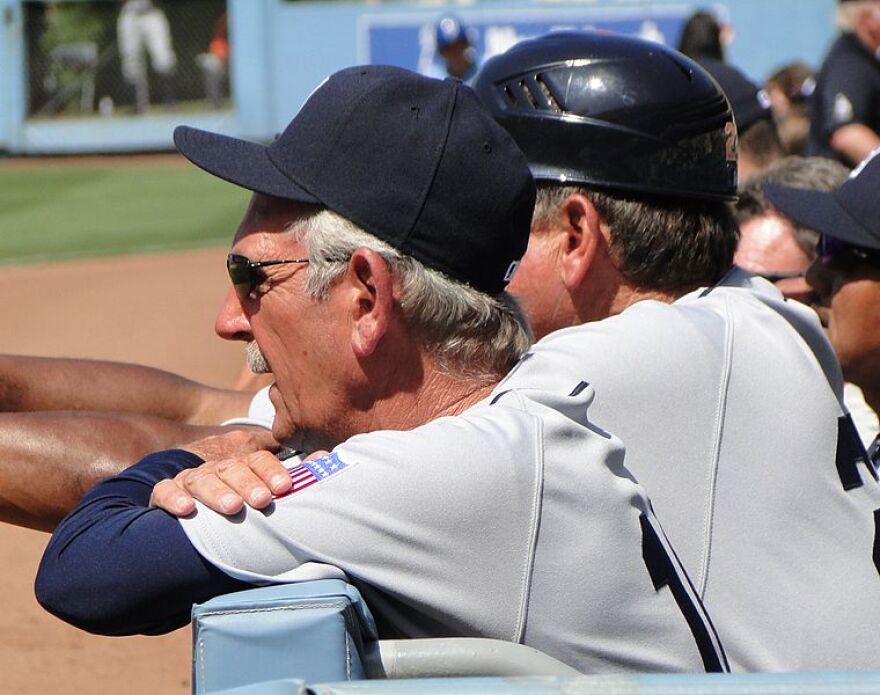The odds makers are picking the Detroit Tigers, but the San Francisco Giants are a loose bunch.
They fought off three elimination games on their way to the World Series... twice.
Here's one statistic NPR's Tom Goldman pointed out this morning:
"Three times in the past in World Series when a team that's swept its way into the Series, like Detroit did, played a team that went the full seven games, like the Giants did, the team that went seven won every time."
But while the Giants have momentum leading into the series, the Tigers have talent and the steady hand of manager Jim Leyland to help them.
Orel Hershiser, a former MLB pitcher and World Series winner, says Leyland is someone who makes millions, but drives a Chevy truck.
In his piece published today on ESPN.com, Howard Bryant calls Leyland "the bridge" for the city of Detroit.
He's the bridge to Sparky Anderson, the last great manager of the last great team in this town, the connective tissue between the good years, when the world looked up at Detroit, before the dwindling population, the unemployment, and the team he inherited that once lost 119 games, and now, where baseball again reigns. He's the bridge between the hardhats, the working class, the retired and the downsized, the auto men and the ironworkers and the roofers who remember cracking a beer to Sparky's Boys -- Trammell and Whitaker, Morris and Gibson -- and today's more complicated, multicultural team of Cabreras and Infantes and Valverdes. It is a new breed, but the old man is still there, bridging the gaps, vouching for them.
Bryant writes about Leyland's past (he never even played triple A ball), and about his managing style.
"He lets us do our jobs. He treats us like men," center fielder Austin Jackson said.
And for a manager that respects his players, he knows how to demand it from them as well.
But as Bryant writes, Leyland thought of leaving Major League Baseball 13 years ago:
There were so many reasons, but the one that seemed the most irreparable was his belief that he could no longer relate to the modern player, the ones who made so much money, who because of that money were more powerful than the manager and they knew it. The players didn't have to listen.
For a little insight into how he handles tense situations with these players, here's a clip showing how he managed Barry Bonds back when they were both with the Pittsburgh Pirates.
(*Warning - It's also a lesson in how the "F-word" is used in the MLB)
http://youtu.be/P9DHA2dJ7uQ











